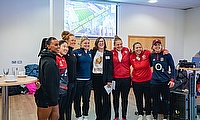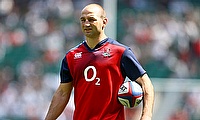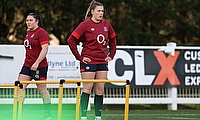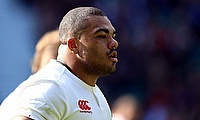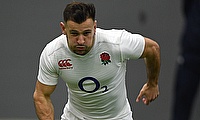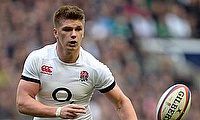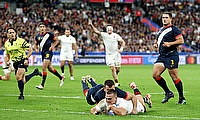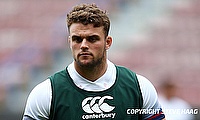Where do England go from here
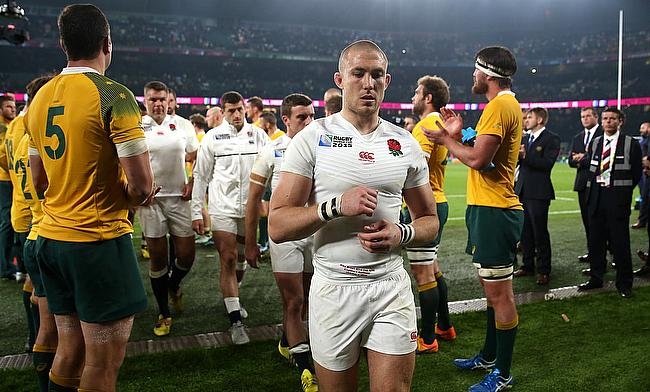
England side leave the twickenham turf dejected
©PA
That is the question which the RFU, Stuart Lancaster, England’s 31-man squad and an entire nation of fans are asking themselves.
England’s exit at the pool stage of this year’s Rugby World Cup marks not only the first time they have failed to qualify for the quarter-finals, but also the first time the tournament’s host has failed to reach the knockout rounds. It’s a level of failure which is hard to comprehend for a side which came within minutes of winning the Six Nations this year and was being tipped by many as the greatest challenge New Zealand would face in the defence of their crown.
The home nation now find themselves dumped out of their own RWC and facing the most meaningless game in English rugby history, their fixture with Uruguay this coming weekend. It begs the question, where do England go from here?
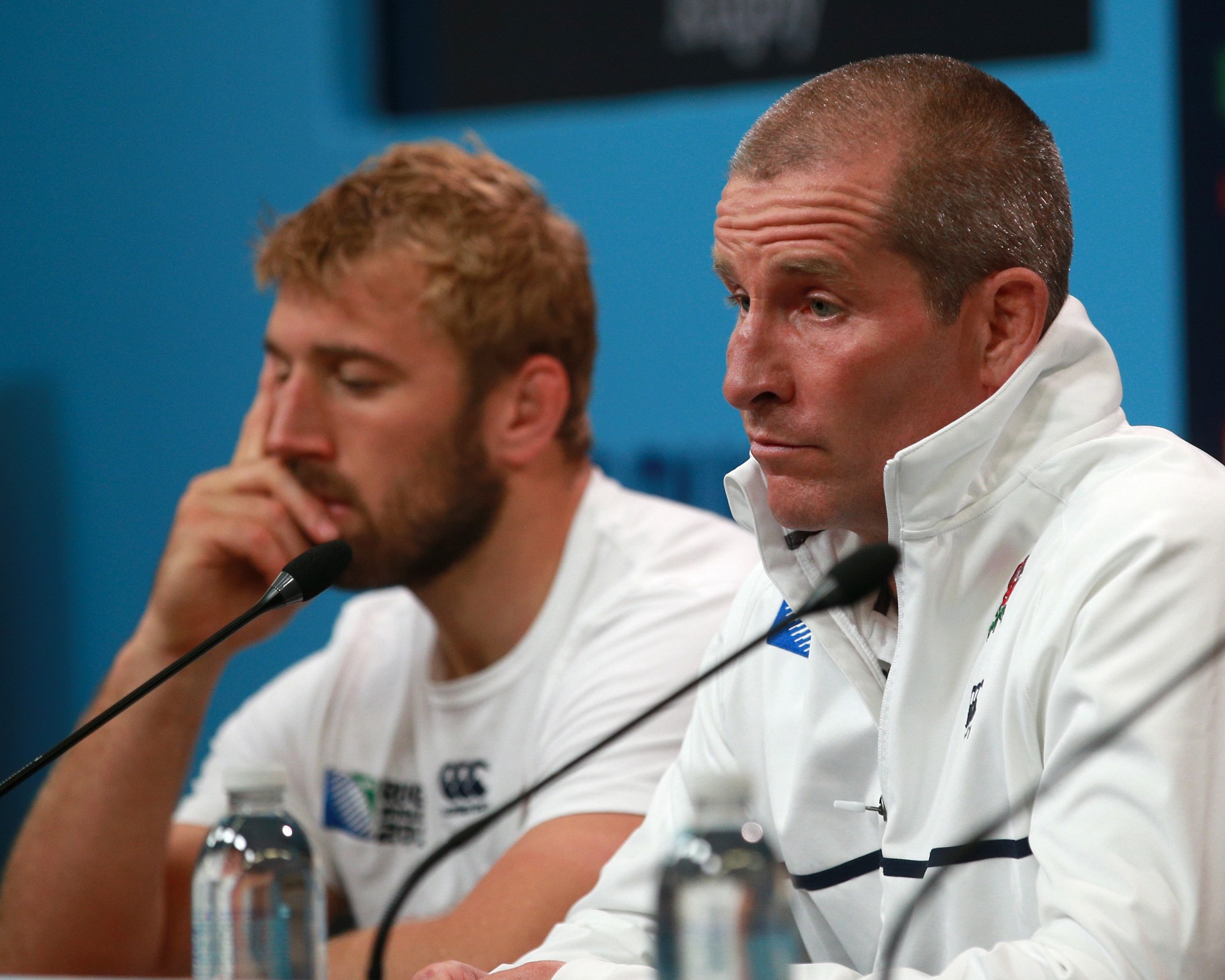
What went wrong?
Before devising a strategy for England moving forward, it’s important to establish what exactly went wrong, lest they repeat the same mistakes four years down the road in Japan.
From a coaching standpoint the selections, use of bench and gameplans have all been criticised, whilst on the pitch, England’s deteriorating scrum and ineffective work at the breakdown have both contributed significantly to their downfall.
People are quick to point to England’s lack of an archetypal fetcher as the root of this problem and while one may have helped England pillage more Fijian, Welsh and Australian ball over the last few weeks, it was not the reason that they were beaten at the contact area in those three contests.
England’s rucking was poor throughout the tournament, with clearers coming in high, instead of low and driving defenders up and off the ball, and no man exploited this with as deadly effect as David Pocock. These breakdown woes are nothing new and, apart from brief moments, have dogged England since the back row trio of Richard Hill, Neil Back and Lawrence Dallaglio sailed into the sunset.
The faltering scrum caught many off guard given that England had the most efficient scrum in the Six Nations, but with Dylan Hartley omitted, opposition tightheads were able to expose the new combination of Joe Marler and Tom Youngs. The chemistry of the front row needs to be looked at moving forward, but England don’t lack for talent in that department and though an issue at this RWC, it is not one which should derail them moving forward.
Is Lancaster the man to lead England forward?
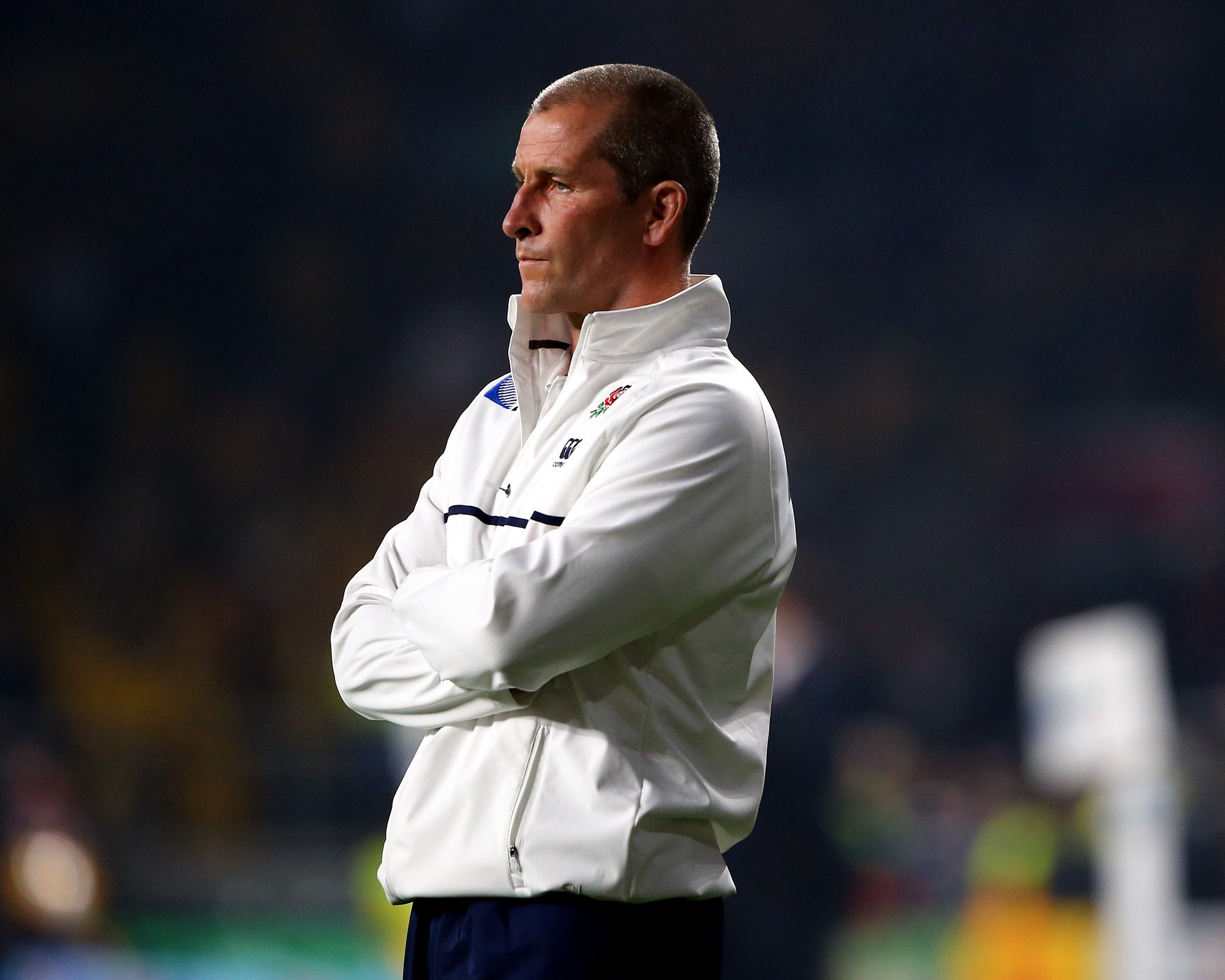
This question, rather unfairly, was being asked before the tournament even began. Let’s not forget that Lancaster was the man who helped rebuild English rugby, on and off the field, after the disaster that was the 2011 RWC and gave the team a direction which had been sorely lacking before.
Of course, the 2011 RWC, which was widely regarded as the worst in English history, has now been relegated to second on the list, and the direction which Lancaster seemed to have England moving in has taken a trip around Spaghetti Junction during the last few months. Throw in the aforementioned debatable selections and puzzling use of the bench over the last 18 months and questions over Lancaster’s future are now much more valid than they were before.
Lancaster has admitted in the aftermath of his side’s loss to Australia that he would consider his future after the upcoming game with Uruguay, but it’s a decision which could be taken out of his hands.
If the RFU and CEO Ian Ritchie, who could also be under real heat given that he rewarded Lancaster with a contract extension through to 2020 last year, decide that Lancaster isn’t the man to take them through to the 2019 RWC, there are no shortage of intriguing alternatives.
Aviva Premiership head coaches Rob Baxter, Jim Mallinder and Mike Ford would all be somewhere near the top of any prospective shortlist, whilst the job Dean Ryan has done masterminding Worcester’s return to the top tier of English rugby has reinforced his status as one of the savviest minds in the rugby world. Sir Clive Woodward would be a controversial choice, but given his reported interest in the French job recently, he may be amenable to a reconciliation with the RFU and given his experience, it would be foolish to not at least consider him.
The pool of English coaches is deep right now and some of the names seem to make too much sense to ignore, but if they are content with their current roles, there would undoubtedly be plenty of interest from foreign coaches. The South African duo of Nick Mallett and Jake White are two names likely to be floated, whilst Saracens head coach Mark McCall, whose talent-heavy team will be a big contributor to the England squad for years to come, has proven his credentials time and time again.
Should England continue to show faith in Lancaster, and the man himself believes he can put England back on an upward trajectory, then scrutiny will move to his assistants, Messrs Farrell, Catt and Rowntree. The latter came into the tournament as one of the most respected assistant coaches in the world and though the England pack’s inability to cope with the loss of Hartley at the scrum and ineffective breakdown work will probably blot Rowntree’s copybook, it shouldn’t be damning.
As for Farrell and Catt, only time will now tell, but as with Lancaster and the head coach position, there are plenty of alternatives to consider. The likes of Steve Borthwick, Joe Worsley, Alex King and Paul Gustard have been winning universal acclaim over the last few seasons, whilst Maggie Alphonsi could be a real feather in England’s breakdown cap if they could lure the player-turned-pundit into a coaching role.
The RFU has already reiterated their desire to maintain the current ‘no foreign-based players’ rule, which is hugely positive for English rugby, and makes their decision regarding Lancaster, his assistant coaches and/or his or their replacements relatively simple.
Who can get the best out of an exciting core of young players and play a brand of rugby which suits the resources England have?
Time to commit to the new generation
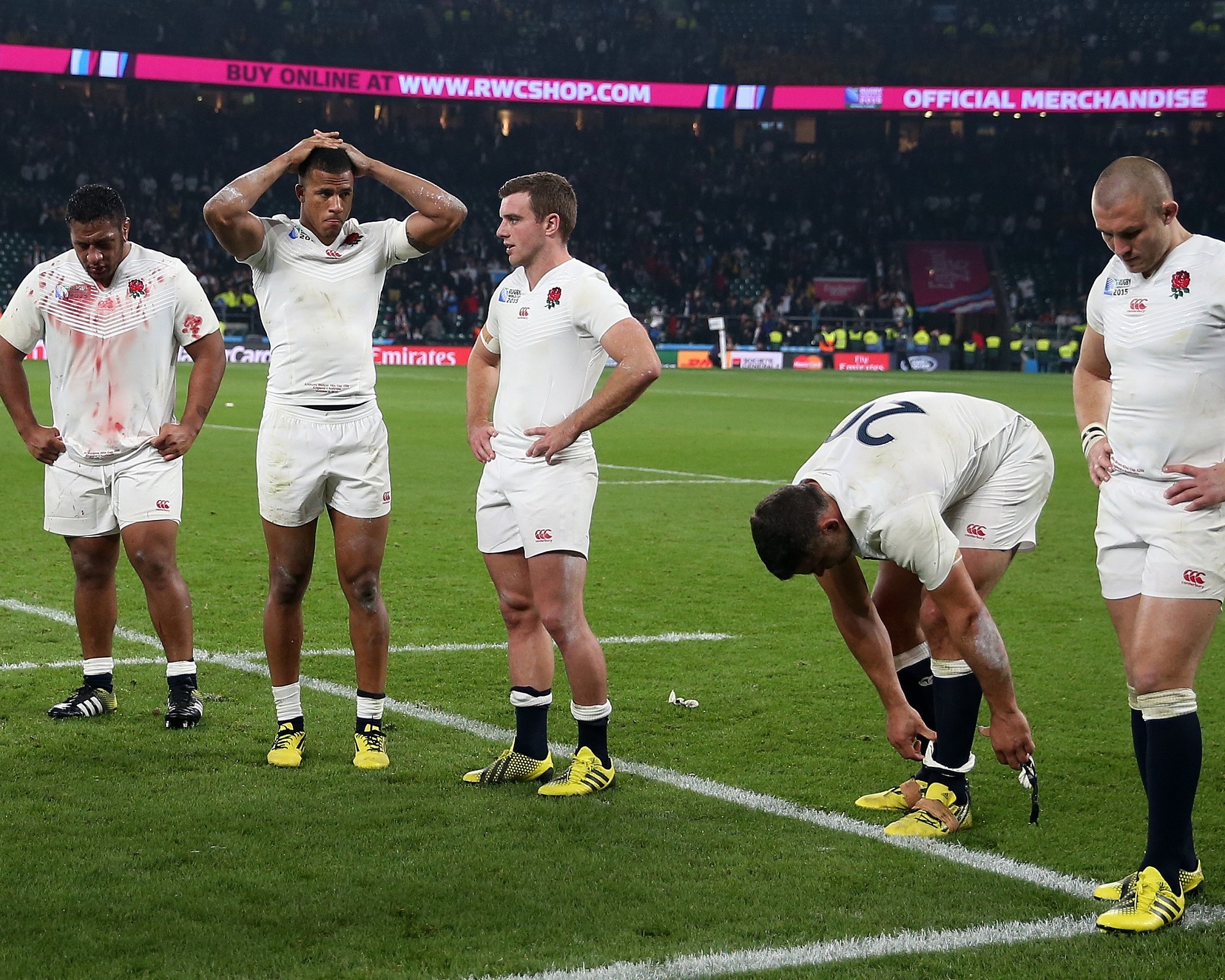
It may seem counter-intuitive, given that England have been pilloried for their lack of experience, but they should look to younger, less experienced options in this upcoming Six Nations. The idea that more caps can turn a good team into a great team is at best naive, but at worst, just plain wrong. The All Blacks and the Wallabies aren’t better than England just because they have more caps, they identify talent more proficiently and make sure they get the required experience from a young age.
England have two Junior World Championship-winning sides to blood in test rugby and it’s important they do so soon, lest they head into the 2019 RWC with a similarly inexperienced squad. The captains of those two JWC-winning sides, Jack Clifford and Maro Itoje, are fine candidates to step up to test rugby this season, as are fellow standouts Luke Cowan-Dickie, Paul Hill and Nathan Earle.
Clifford was arguably the pick of a Harlequins back row last season which boasts two RWC squad members in Chris Robshaw and Nick Easter, while Itoje was perhaps the most dominant player in U20 rugby since its inception in 2008 and has stepped up to senior rugby seamlessly, continuing to stand out at the next level. Both players are natural leaders and could add real impetuous to England’s second and back rows.
Hartley’s omission from the squad and Youngs’ subsequent scrummaging problems highlighted just how much England relied upon the Northampton Saint and should put a real onus on them to find a new solution at the position. Cowan-Dickie is a fierce prospect who should give England everything that Hartley did at the scrum, but he will be under pressure to improve his lineout throwing with Exeter this season, as that was what ultimately cost him a place in this RWC squad.
Hill and Earle, who are both untested at Premiership level, may seem like longshots, but they have a real opportunity to capitalise on England’s disastrous RWC and throw themselves into contention. Hill, a tighthead prop, was peerless at two JWCs, even getting the better of highly-touted South African prop Thomas du Toit and offers near limitless potential. Saracens’ Earle offers England a wing option with all the size of an Israel Folau, but also with all the footwork and acceleration of a Jason Robinson, and if he can fill the David Strettle-sized void in North London, he could be the story of the 2015/16 Premiership season.
It might seem like madness to add further youth and inexperience to an already green England team, but these guys are the spearheads of a potential golden generation in English rugby that the RFU cannot afford to either ignore or mishandle over the next four years. Whatever your opinion of Lancaster’s tenure at the helm of the England team, the work done with the England U18 and U20 sides during that time, as well as the Premiership academies, has been revolutionary.
Clarity for the players
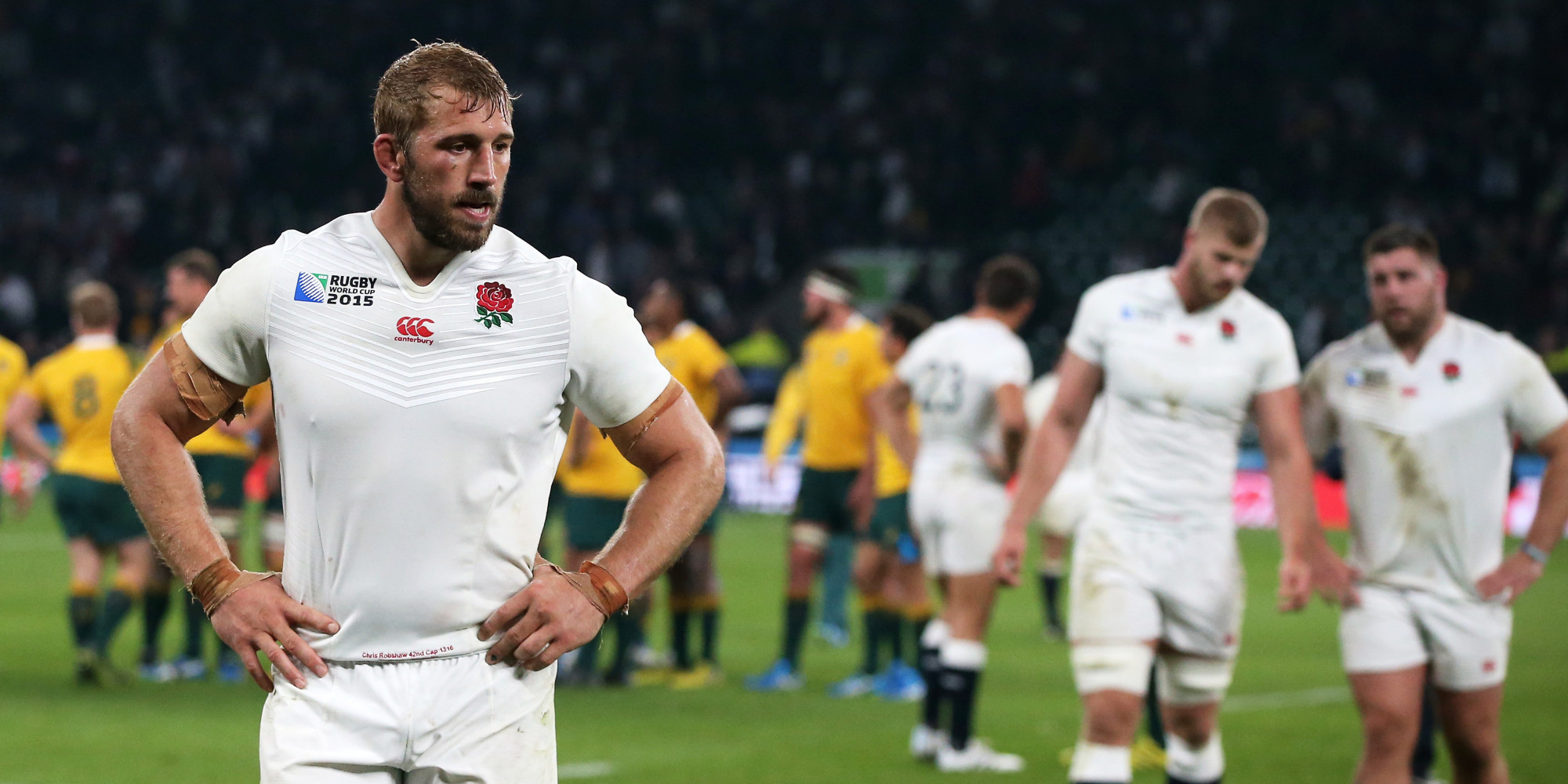
It’s always tough for player to acknowledge when his international career is over, but that is the unenviable realisation confronting several of England’s RWC squad over the coming weeks.
Rob Webber, David Wilson, Geoff Parling, James Haskell, Nick Easter and Richard Wigglesworth may have all played their last games for England given that they will all be in at least their mid-30’s by the time the next RWC comes around and that for many, their opportunities with England are limited as is. Robshaw, Mike Brown, Brad Barritt and Tom Wood are four others who will be well into their 30’s by Japan 2019, but given that they all feature prominently in the current England team, their futures are by no means certain.
On the other hand you have players like Dave Ewers, Luke Wallace, Danny Cipriani, Kyle Eastmond and Christian Wade, all of whom have international potential, but need to be left in no doubt of what it is they need to do to warrant selection, as sparkling form in the Premiership has clearly not been enough as of yet.
As well as England being clear with their players about their prospective opportunities heading into the next cycle, they also need to establish certain players’ positions at test level, particularly in regards to Henry Slade, Anthony Watson and, of course, Sam Burgess.
Slade is a natural fly-half who embodies all the strengths of Owen Farrell and George Ford, potentially with none of the weaknesses, and deserves a shot in England’s 10 jersey to see if he can thrive in the test arena. There’s no doubt he can do a job at outside centre if required, but if you buy yourself a Ferrari, you want to take it to Silverstone, not an off-road track. England need to distance themselves from shoe-horning players into positions which aren’t their best.
Similarly, Watson is the most exciting full-back in English rugby right now and with all due credit to Brown, who has been England’s most reliable and impressive player of late, it’s a position the Bath man needs to be playing at international level. His ability to counter-attack is useful on the wing, but it’s only at full-back where it will truly be appreciated.
And then there’s Burgess. Rumours will be rife that he’s heading back to League following England’s RWC exit, but should he stay, and he recently publicly stated he would, then England and Bath need to sit down and discuss his future. Bath (and most of the world) see him as dynamic flanker and for good reason. He really started to impress at blindside during the final rounds of the 2014/15 Premiership season and though it was understandable that Lancaster couldn’t use him as one given the lineout struggles England were enduring, Lancaster or his successor need to be brought on board with his future in the back row. The transition from League is difficult enough without him being bandied about from position to position, as all it will do is hinder his chances of success.
How could England line up in the 2016 Six Nations?
Obviously form during the Premiership season will dictate who plays and who doesn’t, but below is a XV which has all the potential to be everything England fans hoped their side would be this year and more come 2019. It’s been a tough week for England fans, but hopefully this shows that there is light at the end of the tunnel and it’s pretty bright, England just need to keep walking towards it.
Joe Marler, Luke Cowan-Dickie, Dan Cole, Maro Itoje (c), Courtney Lawes, Jack Clifford, Matt Kvesic, Billy Vunipola; Ben Youngs, Henry Slade; Jonny May, Owen Farrell, Jonathan Joseph, Marland Yarde, Anthony Watson.






